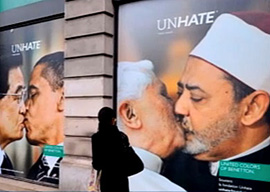
November 29, 2011

Even folk who are normally rather intelligent get caught up in the fever. At a recent party in a well-heeled section of Los Angeles, several of the guests were boasting to me that they were about to spend $37,000 a plate to dine with President Obama. When I remonstrated with one lady, she told me that I did not understand the poor. I observed that the same sum would do a lot for the Saban Free Clinic. I would have told a Republican keen on wasting a similarly outrageous amount to eat a sandwich with a GOP candidate the same thing—though perhaps substituting a veterans-aid group for the Free Clinic. Either way, the truth is that thousands upon thousands of dollars are spent upon a band of parasites who could do quite well without the tribute of their followers—and that money could be far better spent upon causes actually dearer to the giver’s heart. The same goes for volunteer hours.
Sadly, electoral politics have eaten up far more of life than they are worth. Everything—religion, culture, sports, conservation, etiquette—is seen purely in terms of its political value. Areas that were simply accepted as part of life (therefore outside the realm of mere political debate) such as the humanity of the unborn or the nature of marriage—have been demoted to party platforms. What we have lost is the idea that most of life is beyond and above the rantings of the political class and that said rantings are merely a means to an end. Those on what is called the “left” favor the state, those on the alleged “right” pander to the market, and both ensure the political class retains its power.
What is ignored is what sociologists are pleased to call “civil society,” that part constituting the sum total of non-governmental, non-business organizations and institutions. Ranging from fraternal organizations to churches to single-issue advocacy groups, they are, traditionally, where most people lead the greater part of their lives. From the United Nations on down, governments and politicians of all sorts try to mobilize these groups on their own behalf, with varying amounts of success. Rather than a sanctified process of creating the best rulership possible, politics as currently constituted are simply the way the oligarchy preens and drums up support for itself.
So let what financial and personal political efforts we make concern the local scene or focus on specific issues rather than the macrocosm or tribal labels such as “Democrat” or “Republican.” But above all, do not let those activities outweigh the ones that are really important to us—be they charities, historic or natural preservation, fraternal societies, or whatever. That is where reality is, not in the maunderings of our “betters.”
Living under centuries of what we would regard as despotic rule, the Chinese sang a song reflecting their view of the imperial government:
When the sun rises, I toil;
When the sun sets, I rest;
I dig wells for water;
I till the fields for food;
What has the Emperor’s power to do with me?
Modern Americans could learn a lot regarding their own masters from the ancient Chinese.